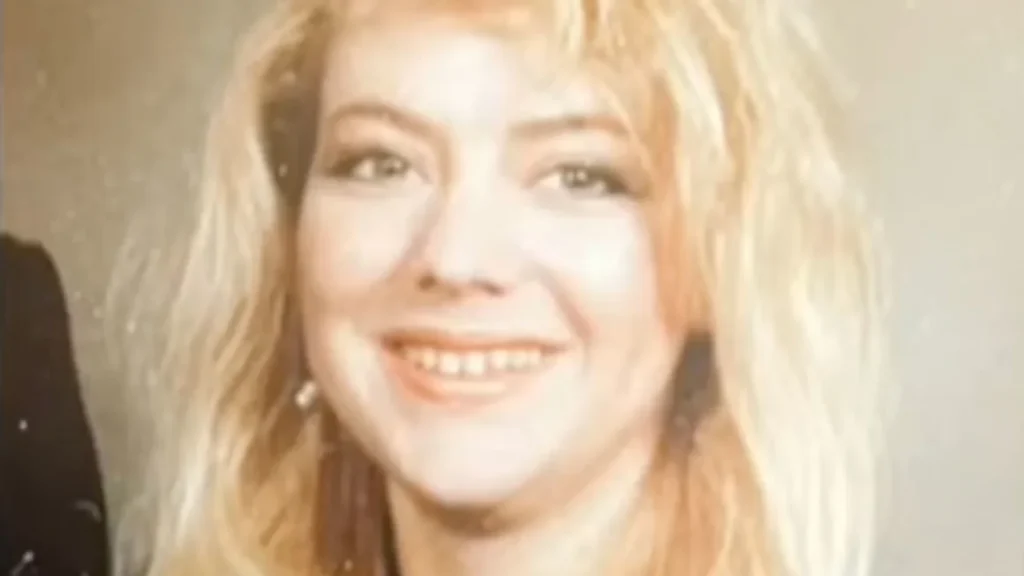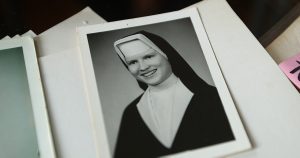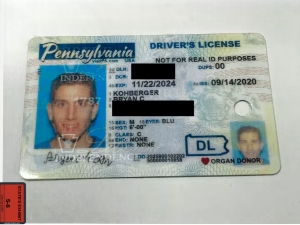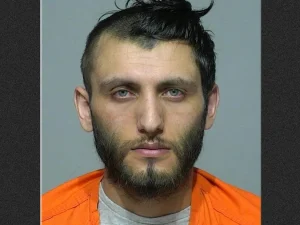Melonie White's Legacy: The Impact of Cold Case Resolution
Melonie White, a 27-year-old mother of a young son, was known for her keen sense of fashion and her pursuit of a new career when her lifeless body was found. On August 27, 1994, hikers located her remains near Lake Mead National Recreation Area, approximately 10 miles east of Las Vegas.
Nearly three decades later, the Las Vegas Metropolitan Police Department identified her alleged killer as Arthur Joseph Lavery through DNA analysis and forensic genetic genealogy. Lavery passed away in 2021, as reported by the authorities. Following the discovery of White's body, an autopsy determined that her death was a homicide, revealing signs of strangulation and blunt force trauma to the head. Investigators indicated that she had been strangled with a ligature, struck, and subsequently dragged by a vehicle into a desert wash.
Despite pursuing various leads during the initial investigation, no suspects were identified, and the case eventually went cold. For many years, her bereaved family was left without answers, burdened by an overwhelming need for closure. In 2010, cold case detectives retrieved additional evidence and submitted it for DNA analysis, which resulted in a male suspect's DNA profile. However, it was not until 2021, with the help of the Las Vegas-based nonprofit Vegas Justice League, that a suspect was finally identified.
The organization covered the expenses for sending the case to a laboratory that utilized DNA testing and genetic genealogy, ultimately confirming Lavery as the suspected murderer.
Related: The Zodiac Killer Took Five Lives—Yet Claimed Many More. Here's What You Need to Know About His Victims and Survivors.
The Role of Vegas Justice League
Crowdfunded Crime Resolution Established in 2020 by entrepreneur Justin Woo, the Vegas Justice League, along with his nationwide initiative Project Justice, has successfully resolved 41 cold cases throughout the United States, including nine homicides in Las Vegas.
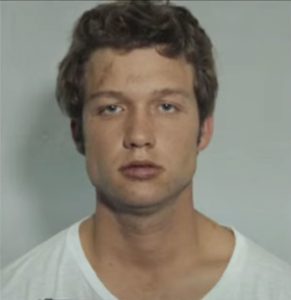
Arthur Lavery Las Vegas Metropolitan Police Dept
This initiative finances forensic genetic genealogy, a law enforcement method that employs DNA analysis and genealogical research to identify suspects in criminal investigations or to ascertain the identities of unidentified victims. The funding for these cases is sourced from contributions made by the six members of the Justice League, including Woo and his spouse, Lydia Ansel, as well as from community donations.
Once sufficient funds are collected for a specific case, the nonprofit organization notifies law enforcement, which then forwards the case to a laboratory specializing in forensic genetic genealogy, such as Othram, a Texas-based facility that collaborates exclusively with law enforcement agencies. On August 26, 2024, nearly three years after law enforcement submitted the case to Othram, the suspected perpetrator of White’s murder was finally identified. “It’s comforting to achieve closure on this matter,” stated Walter White, Melonie’s brother, during a news conference on October 22. “The impact of her death profoundly affected my mother. This was perhaps the most significant ongoing issue for our family, as my mother was utterly devastated; it took a considerable amount of time for us to return to a semblance of normalcy.”
Family Reactions and Community Support
Jason White, the younger brother of White, also addressed the audience during the news conference, reflecting on the moment he received the devastating news of his sister's death. At the time, he was a student at Arizona State University, and it was the Friday preceding the start of his semester when he received the call that irrevocably altered their family’s life. “I want to express our deep gratitude to the officers of the Las Vegas Metropolitan Police Department for their relentless pursuit in finding Melonie’s murderer,” Jason White stated, his voice trembling with emotion.
“We are immensely thankful for the support of the Vegas Justice League, whose financial contribution for DNA testing enabled the police to make significant progress in the case. Melonie will always be missed, and we believe that resolving her murder will provide a degree of solace for her and for all of us.”
Las Vegas Homicide Lieutenant Jason Johansson also expressed appreciation to the Justice League for their steadfast support in assisting the community, friends, and family in the resolution of case investigations. “Their backing has been instrumental in achieving closure for nine cold cases that would have remained unresolved without their help,” Johansson remarked.
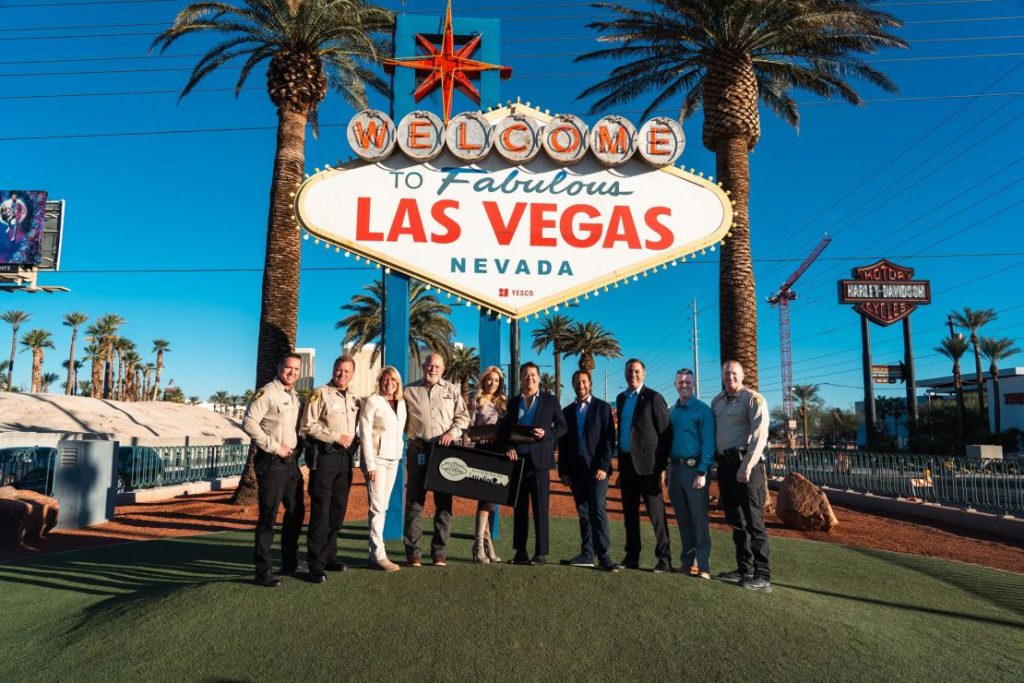
Clark County Commissioner Michael Naft, in partnership with the Las Vegas Metropolitan Police Department, presented the Vegas Justice League with a key to the Las Vegas Strip in recognition of their contributions to solving cold murder cases. Las Vegas Metropolitan Police Department
Related: The Menendez Brothers' Money
Continued Efforts in Cold Cases
The Vegas Justice League has also provided funding for ongoing DNA testing in at least 82 additional cases. According to Woo, the cost for each case is approximately $7,500, which accounts for the million-dollar sequencing machines utilized for testing, as well as the team of geneticists and researchers who assist in piecing together the information. “We firmly believe that every case will ultimately be resolved, although the process can be lengthy, sometimes taking months or even years due to the extensive research involved,” Ansel informed CNN. Investigators employ genetic genealogy to resolve cold cases by utilizing suspect DNA obtained from crime scenes. This DNA is analyzed and transformed into a raw data file, which is subsequently uploaded to databases such as GEDMatch. This platform is frequented by individuals who submit their genetic testing kits to explore their ancestry and connect with relatives. GEDMatch processes the suspect’s DNA data files and identifies individuals who have uploaded their own DNA data to the site and share a familial connection with the suspect.
A genetic genealogist then constructs an extensive family tree for the individual who submitted their DNA, aiming to pinpoint the suspect's position within that tree. Investigators proceed to gather DNA samples from members of the extended family until a match is found between a relative's DNA and the DNA collected from the crime scene, ultimately leading to an arrest.
A novel and robust forensic technique has gained significant traction among law enforcement officials in recent years. This method has been instrumental in resolving some of the nation’s most perplexing cold cases, most notably leading to the apprehension of the Golden State Killer in 2018.
Joseph James DeAngelo was taken into custody in a suburb of Sacramento, California, on allegations of having murdered 12 individuals and sexually assaulted over 50 women during the 1970s and 1980s. The inception of the Vegas Justice League occurred when Woo discovered Othram and learned about their crowdfunding initiatives for various cases. Woo chose to sponsor one of these efforts, which ultimately led to the resolution of the case involving Stephanie Isaacson, a 14-year-old girl who was kidnapped on her way to school, sexually assaulted, and brutally murdered in 1989.
“It began as an effort to assist our local community,” Woo remarked. “During our first endeavor, we were uncertain of the outcome. It took seven months. However, upon witnessing the results and the significant impact we could make, we felt compelled to continue and dedicated ourselves to this mission.”
The contributions of the nonprofit have garnered recognition. On October 30, the Vegas Justice League was awarded a key to the Las Vegas Strip in acknowledgment of their work in solving cold murder cases, during a ceremony attended by the LVMPD. Each unresolved murder case represents a family that has endured ongoing grief and a longing for justice. While resolving a case may not mend the profound wounds of their loss, it can offer a sense of closure. Ansel believes that this is the objective they are diligently pursuing.
“It’s an emotional blend, where you share in their devastation over the loss of a child who will never return,” Ansel expressed. “Yet, there is also a sense of gratitude that they have received answers and some form of resolution to what has often been a 30 or 40-year ordeal.”



